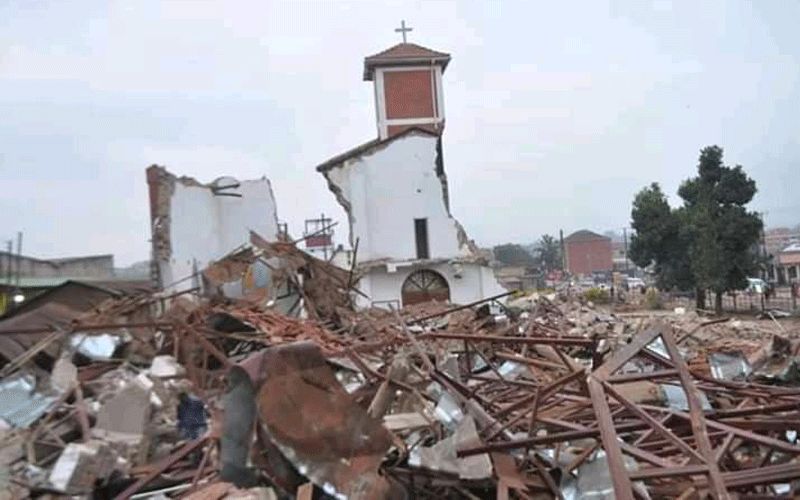The Ugandan Archbishop who is the Chairman of the Uganda Joint Christian Council blamed the demolition on the lockdown in the country and argued the Government to consider opening up places of worship.
According to a report, the contested land was donated to St Peter’s Church by a man named Dunstan Nsubuga 49 years ago, but after his death, his children sold it to a wealthy city businessman who secured an eviction order and directed the church leadership to relocate peacefully.
When the order was ignored, the businessman, in March, demolished St Peter’s Church of Uganda Primary School, which was also on the land, serving 300 students, mainly from the surrounding low-income neighborhood and warned he would also raze down the church.
The demolition has attracted nationwide condemnation from religious leaders, politicians as well as the country’s President Yoweri Museveni.
While touring the site of the demolition on Friday, August 14, President Museveni promised to ensure that perpetrators of the violence were brought to book and denied allegations that the government was behind the destruction.
“I am sad about this church incident, but we are going to punish whoever was involved,” Ugandan local media has quoted President Museveni as saying.
“It is not true that the government broke down the church; that's propaganda. I am a Christian who can't allow this,” the President said, and added, “I have joined this war and we shall build a new church.”
On Wednesday, August 12, more than 30 representatives from the House of Bishops from the Province of the Church of Uganda gathered near Kampala to express their dissatisfaction with the country’s Judiciary which, the church leaders said, had allowed the demolition of the Anglican church.
The Bishops decried the act, saying that a decision to break down the church “is shameful for the country and has created a black spot in the history of Uganda.”
Agnes Aineah is a Kenyan journalist with a background in digital and newspaper reporting. She holds a Master of Arts in Digital Journalism from the Aga Khan University, Graduate School of Media and Communications and a Bachelor's Degree in Linguistics, Media and Communications from Kenya's Moi University. Agnes currently serves as a journalist for ACI Africa.








